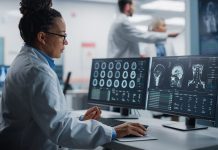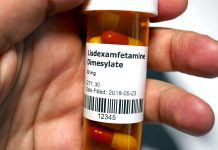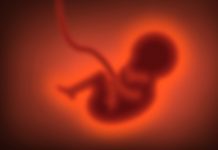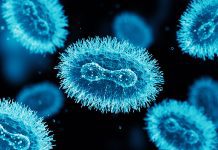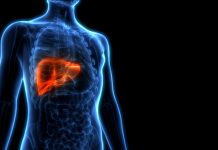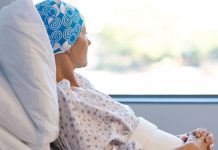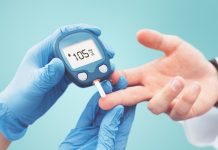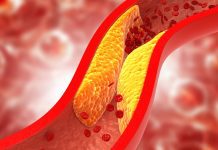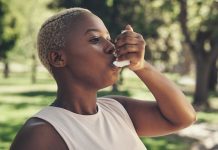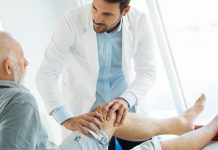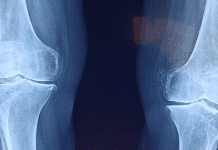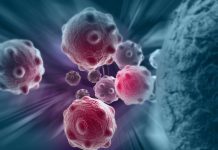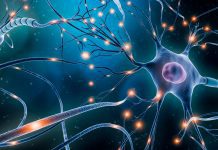Co-workers can influence healthy eating and exercise habits of colleagues
Researchers from the universities of Cologne and Utrecht have found that co-workers can influence each other to improve healthy eating habits.
The researchers found that...
GP teams gain access to tests to speed up cancer diagnosis
The NHS has rolled out fast-track testing to speed up cancer diagnosis, which will help patients across England.
NHS England is expanding direct access to...
Lisdexamfetamine is the safest medication for people with drug addiction
Lisdexamfetamine, a medication for ADHD, has the lowest risk of hospitalisation and death in people with amphetamine addiction, according to research from Karolinska Institutet...
Researchers find gene that inhibits embryonic development
Researchers from the University of Bonn have identified a gene that can disrupt embryonic development and cause malformations.
An international study led by the Medical...
Researchers design miniature bone marrow organoids
Scientists from Oxford University and the University of Birmingham have made the first bone marrow ‘organoids’.
The bone marrow organoids include all the key components...
COVID-19 virus can reactivate myalgic encephalomyelitis
According to researchers from Linköping University COVID-19 can reactivate viruses that had become latent in cells, particularly in people with myalgic encephalomyelitis.
Severe, long-term fatigue,...
The bacteria behind leprosy disease could regenerate livers
In a groundbreaking discovery, researchers have found that parasites behind leprosy disease can reprogramme cells to increase the size of a liver.
The latest findings...
Making brain tumour surgery safer with quantum sensors
Researchers from Johannes Gutenberg University Mainz (JGU) and the Helmholtz Institute Mainz (HIM) have been developing new technology to make brain tumour surgery safer.
Removing...
CBD content has no bearing on cannabis safety
The CBD content of cannabis has no effect on the drug’s safety, according to researchers from the Institute of Psychiatry, Psychology & Neuroscience at...
University of Oxford researchers discover a key cause of type 2 diabetes
New research has illuminated the key cause of type 2 diabetes, finding that high blood glucose reprograms the metabolism of pancreatic cells.
Around 415 million...
Atherosclerosis can be cured if it is spotted in early in life
An international research team has found that elevated lipids and dyslipidaemia in early life may worsen cases of atherosclerosis in later life.
The study found...
New £30m funding to improve treatment of inflammatory diseases
An additional £30 million research injection will further fund developments into inflammatory diseases.
The National Institute for Health and Care Research (NIHR) Birmingham Biomedical Research...
How weight gain can worsen symptoms of asthma
Changes in gut function brought on by weight gain have been associated with an increase in severe symptoms of asthma, according to new research.
A...
WHO advises immediate skin-to-skin contact for small and preterm babies
The World Health Organization (WHO) launched new guidelines about skin-to-skin contact to improve survival and health outcomes of preterm and small babies.
Skin-to-skin contact helps...
What is the best form of osteoarthritis treatment?
A new study has shown that patients with ankle osteoarthritis who undergo surgery see equally good outcomes from the two main forms of surgical...
Adversity in childhood increases risk of heart and blood vessel disease
People who experienced adversity in childhood are at increased risk of developing heart and blood vessel disease in early adulthood.
Researchers from the University of...
Protecting paediatric bone density with Low-intensity Vibration therapy
Edward James from MyBones explores the potential applications of Low-intensity Vibration (LiV) therapy in paediatric bone density care.
Bones get stronger the more you use...
Scientists uncover variable voltages in breast cancer cells
New research from Imperial College London found variable voltages in the membranes of breast cancer cells, revealing clues about how they grow and spread.
A...
Preventing nervous system damage after COVID-19
Researchers from the University of Basel have identified new biomarkers that can prevent nervous system damage after exposure to COVID-19.
Coronavirus does not infect nerve...
Carnitine intake in new-borns is linked to better growth and development
A new study has found that carnitine intake in new-born babies in the first postnatal weeks promotes better growth and larger brain size.
A...


